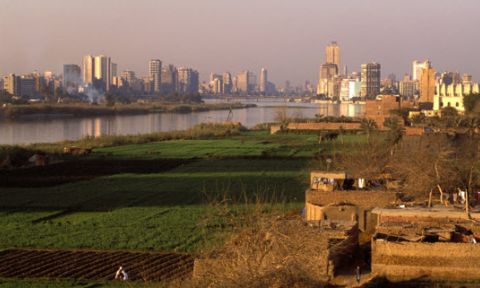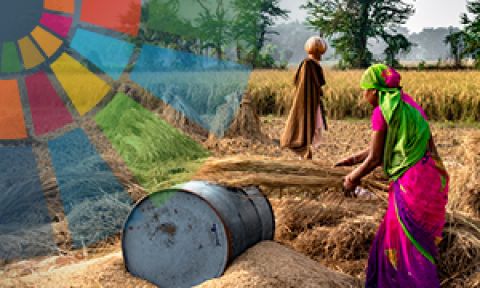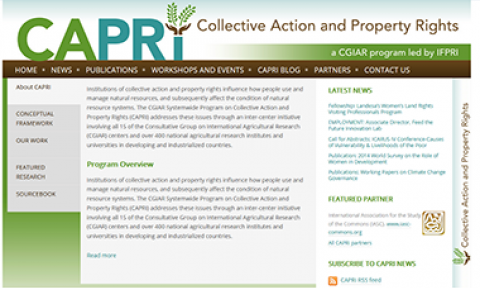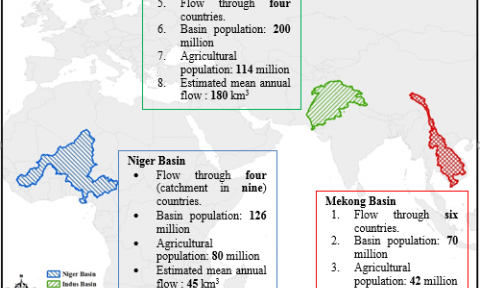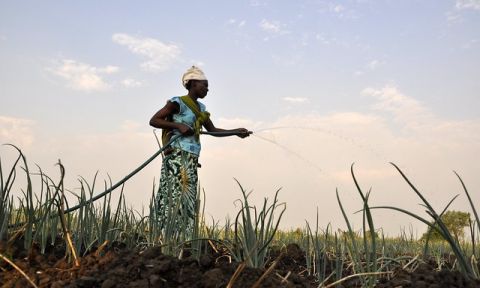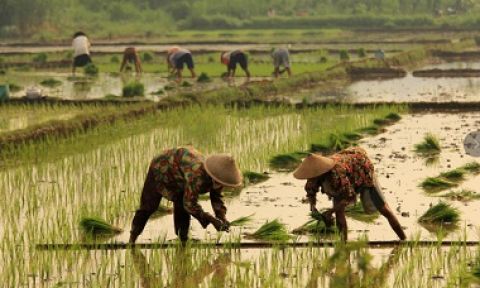Ecosystem services are the benefits people obtain from forests, freshwater, and other ecosystems—water, soil fertility, biodiversity, and climate regulation among the most critical. Ecosystem services are central to sustainable livelihoods and poverty alleviation in developing countries. Agricultural production and food systems everywhere depend on and should contribute to ecosystem health. Decisions we make regarding how to manage crops and agricultural landscapes have environmental implications, including for biodiversity and a wide range of ecosystem services, such as water quality, pollination, nutrient cycling, soil retention, and carbon sequestration. Agro-ecosystem management should aim not only to increase the productivity of existing agricultural land, but also to maintain ecosystem functions underpinning the sustainable supply of goods and services.
IFPRI research provides much-needed insight into how values of ecosystem services and externalities of production systems can be integrated into decision-making of both farmers and policymakers. To inform policies and promote sustainability and inclusion, IFPRI engages in ecosystem services research in the following areas, among others: natural resource management games for research and social learning; valuing and modeling ecosystem services; land use, biodiversity, and ecosystem services; sustainable intensification analysis; and community-based natural resource management. IFPRI’s ecosystem services research is closely aligned with the Sustainable Development Goals (SDGs), including SDG 15.
Ecosystem services may provide large economic values in Kenya and Vietnam: A value transfer application based on results from a systematic literature review
From climate risk to resilience: Unpacking the economic impacts of climate change in Kenya
The political economy of food system transformation in the European Union
Assessing the future global distribution of land ecosystems as determined by climate change and cropland incursion
Agricultural diversification and intra-household dietary diversity: Panel data analysis of farm households in Bangladesh
Maximizing nutrition in key food value chains of Mongolia under climate change
 IFPRI at External EventApr, 29 2024
IFPRI at External EventApr, 29 2024The Latest Innovations in Global Crop Mapping
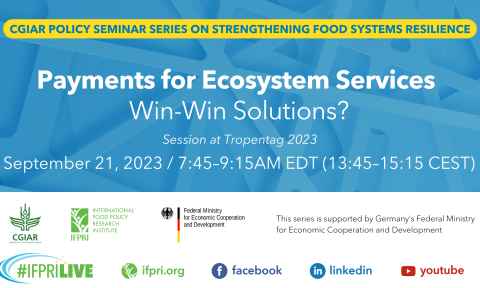 Series/Special EventSep, 21 2023
Series/Special EventSep, 21 2023Payments for Ecosystem Services: Win-Win Solutions?
 IFPRI at External EventAug, 23 - Sep, 1 2022
IFPRI at External EventAug, 23 - Sep, 1 2022World Water Week 2022
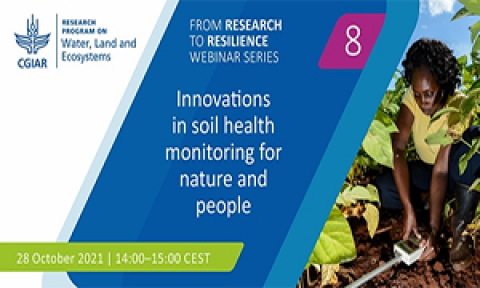 IFPRI Program/Country EventOct, 28 2021
IFPRI Program/Country EventOct, 28 2021Innovations in soil health monitoring for nature and people
 Series/Special EventJul, 7 2021
Series/Special EventJul, 7 2021UNFSS Science Days Side Event: Promise of the Commons for Sustainable and Equitable Food Systems
 IFPRI at External EventNov, 30 - Dec, 1 2020
IFPRI at External EventNov, 30 - Dec, 1 20202020 South-South Cooperation Forum
- In the News
Don't forget the people (Daily News)
- In the News
Worthy to be illustrated (Daily News)

Claudia Ringler
Director, Natural Resources and Resilience (NRR)
Ruth Meinzen-Dick
Senior Research Fellow
Wei Zhang
Senior Research Fellow



